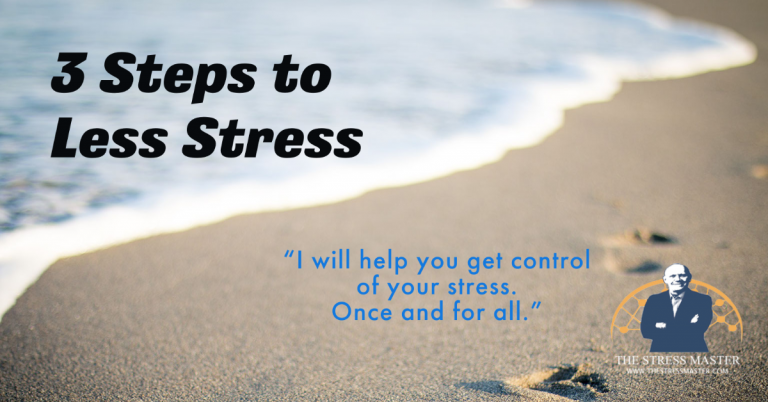There’s no denying workloads and pressures can be difficult. But there are ways you can train your mind to minimise the stress, tackle a bad situation and move on.
It isn’t about recounting your childhood during countless hours of therapy or telling yourself “it’s all in your head.”
There are simple techniques that can help you function at your best. It simply requires you to alter your thought patterns, to distinguish between the possible and the probable.
For example, you fail to reach an important deadline. The first thought that might cross your mind is, “I’m going to lose the deal.” But are you really?
This line of thinking may lead you into a deep, dark hole of negativity, which is totally unnecessary.
Your negative reaction may be turning an actual problem into something even bigger.
Accept what happened and focus on what can be done to mitigate the consequences,
It’s all about perspective.
Changing the way you think can help you with a lot more than stress.
Here are 3 simple changes you can make to help you control your stress.
Step 1. Analyse your behaviour in a random situation to confirm whether it was counterproductive.
Imagine you didn’t receive the credit you deserved for a project in which you were involved. You became unmotivated. It may jeopardise your chance to get another assignment. Being able to tell yourself that’s what happened, is the first step.
Step 2. Understand what caused you to behave the way you did.
This is about identifying a set of deeply held beliefs that influence your more superficial thoughts and emotions. You might have a deeply held assumption that life is not fair and no matter how hard you try, you will never get ahead.” If that’s the principle that organises your thoughts, no wonder you became unmotivated.
Step 3. Identify how your mind is mangling reality, something called “cognitive distortions.”
These can be things like a tendency to turn every bad situation into a catastrophe, zeroing in on the negatives and jumping to conclusions without paying attention to the positives. Everyone displays a few cognitive distortions, but we can strive to think differently. Eventually, this will lead our brains to dig new neuropathways, until the new way of thinking becomes natural and automatic.
If you want help sorting out what is possible versus what is probable…please click here and set up a free 30 minute meeting and I’ll tell you if I can help.
Here’s to mastering your stress.
The Stress Master
Ches Moulton
About Ches Moulton, The Stress Master
Ches Moulton, The Stress Master, is the UK’s leading authority on stress management.
His career has spanned more than 25 years, during which time he has been a much sought-after executive coach, psychotherapist, and trainer. His most recent work has focused on helping those with elevated levels of stress overcome their problems and enjoy productive lives, free from both the physical and mental consequences of chronic stress.
During his time as a business performance consultant, Ches has served as an advisor to both private businesses and government in Canada, the Caribbean, United Kingdom, Africa and the Middle East.
He is the author of ‘How to Get Control of Your Stress: Instead of Stress Controlling You’, and the international best-seller ‘Choice and Change – How to Have a Healthy Relationship with Ourself and Others’.
For more information…including video’s, resources to download and an opportunity to join Ches when he is live…please visit him at thestressmaster.com

